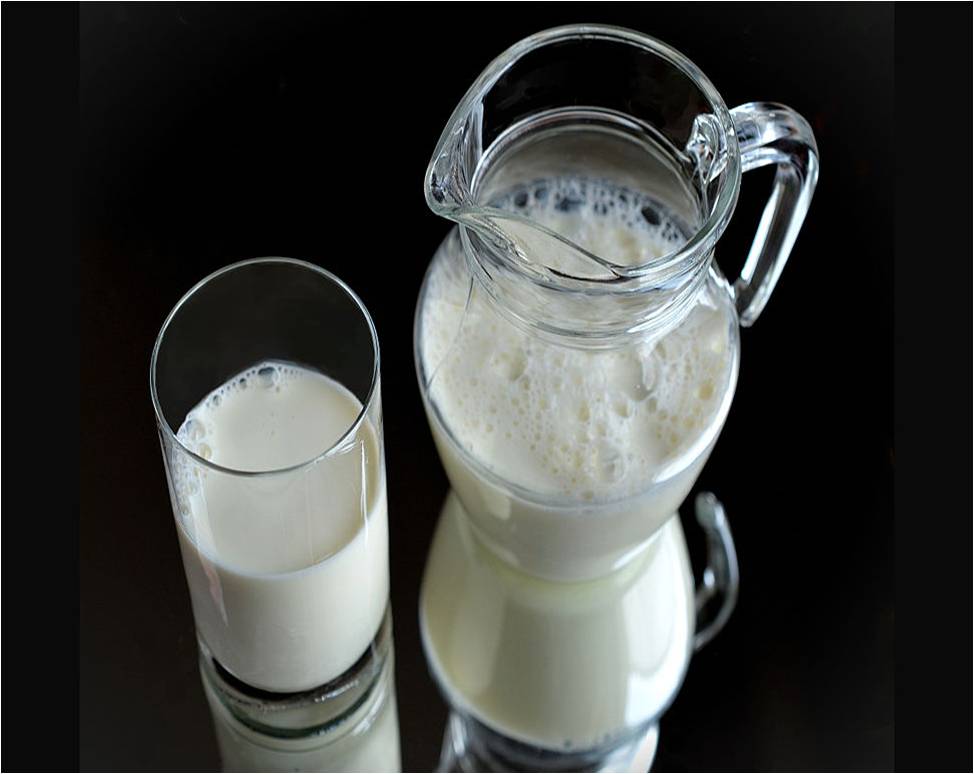The moderate consumption of dairy products may be beneficial to cardiovascular health
The degree of scientific certainty concerning the benefits of dairy products for the prevention of cardiovascular diseases is low, according to a new evaluation by the Nutrimedia project of the Science Communication Observatory, directed by Gonzalo Casino, professor with the Department of Communication.

Messages on the beneficial effect of dairy products on cardiovascular health have proliferated in recent months, particularly in the wake of the publication of the PURE study in the journal The Lancet in September 2018. However, the degree of certainty of the results of the available studies is low and, therefore, the cardiovascular effect of dairy products should be expressed conditionally, i.e., “could be beneficial”, since new research is likely to provide different results. This is the conclusion of a new evaluation by the Nutrimedia project, which has not gone into comparing full-fat and low-fat dairy products, because the available studies are inconclusive and more research is needed to clarify this issue.
Nutrimedia is a project of the Observatory of Scientific Communication (OCC) at the UPF Department of Communication in collaboration with the Iberoamerican Cochrane Center and with the support of the Spanish Foundation for Science and Technology (FECYT), which scientifically analyses the degree of veracity of messages about food and health, while helping to interpret the results of research.
“If the degree of certainty of the results of research were high, it would be correct to affirm that dairy products prevent cardiovascular disease; in the same way, if the degree of certainty were moderate, it should be said that they may prevent them. But the certainty that the research offers is low, and we must use language that expresses this uncertainty”, explains Gonzalo Casino, director of the Nutrimedia project. The results of the scientific evaluation conducted in the framework of this project indicate that the message “dairy products help prevent cardiovascular disease” is “possibly true” (Nutrimedia establishes four degrees of truth: true, probably true, probably untrue and uncertain).
To reach this conclusion, the team at Nutrimedia has reviewed the available scientific evidence. In the words of Montserrat Rabassa, a researcher with the Iberoamerican Cochrane Center and author of the technical report, “the research results show that the consumption of dairy products is associated with a lower risk of cardiovascular disease, as shown by the PURE study and other observational studies included in the previous systematic reviews analysed, but the confidence we have in these results is low”. The PURE (Prospective Urban Rural Epidemiological) study is an observational study carried out on 136,384 people from 21 countries that caused quite a stir in the press worldwide. “Some of the messages that were disseminated then are exaggerated in the light of this evaluation, since they stated as being true that dairy products are beneficial to cardiovascular health without reflecting on the existing uncertainty”, adds Casino.
Another aspect highlighted by the Nutrimedia evaluation is that there is a positive association between the consumption of dairy products and the risk of death due to any cause. In this case, the degree of certainty of the results is also low, and so it should also be stated that the consumption of dairy products may reduce mortality due to any cause.
Healthy eating
Dairy products are part of a group of foods of everyday consumption, and include such varied products as milk, cheese, butter and fermented milk derivatives, such as yoghurt or kefir, among others. Their nutritional profile is interesting due to their content in high biological value proteins, fat, lactose, vitamins (A, D, B6, B12) and minerals (calcium, phosphorus, potassium). However, some of these foods are the subject of debate due to their high saturated fat and salt content, as is the case with many types of cheese, and the added sugar, as occurs with some yoghurts and milk-based drinks.
Dietary guidelines usually recommend low-fat dairy products for people who are overweight and who have cardiovascular problems, due to their lower energy, saturated fatty acids and cholesterol content. This is the case of the guidelines of the Spanish Society of Community Nutrition and of the so-called Harvard plate. Other more recent guidelines, such as those of the Public Health Agency of Catalonia (Small changes to eat better) make no recommendations on the consumption of dairy products. With a healthy lifestyle that includes avoiding tobacco and alcohol, an appropriate diet and regular physical activity, early death due to cardiovascular pathologies, which accounts for 31% of overall mortality, according to the WHO, could be prevented.
Evaluation: https://tinyurl.com/y2xcwqmj
Full technical report: https://tinyurl.com/yy9bswjd
